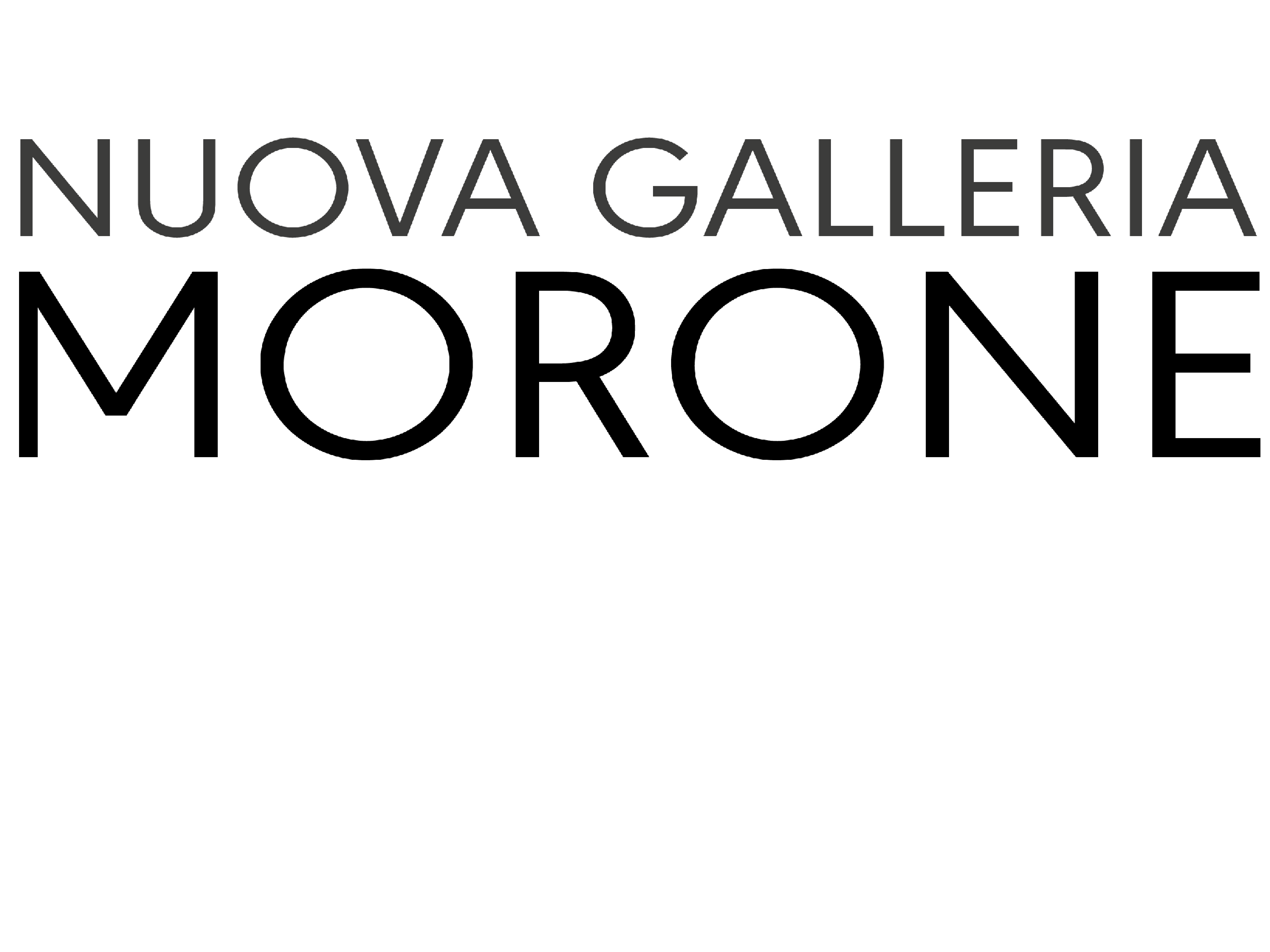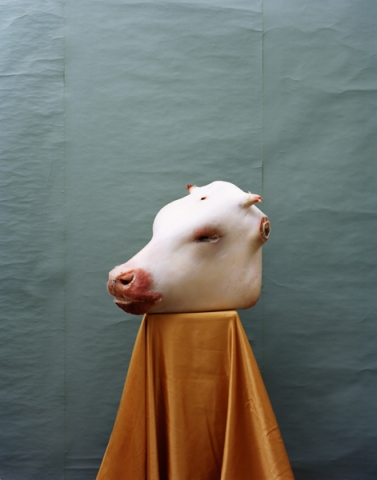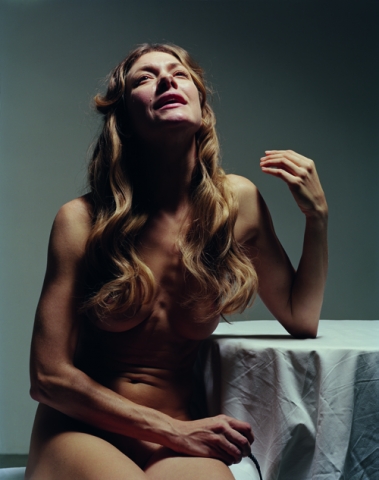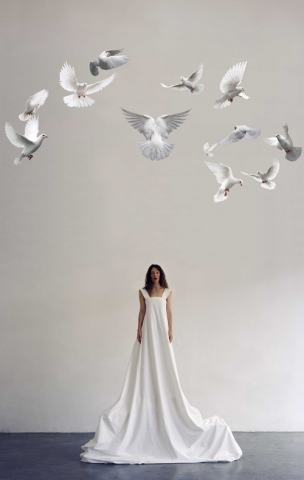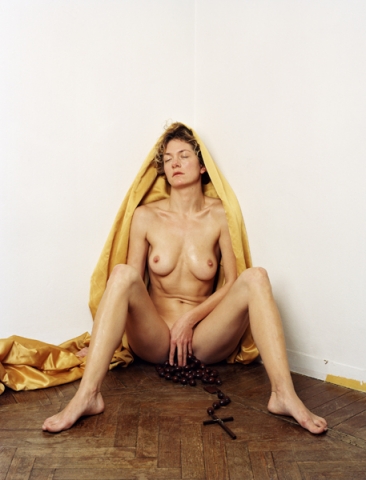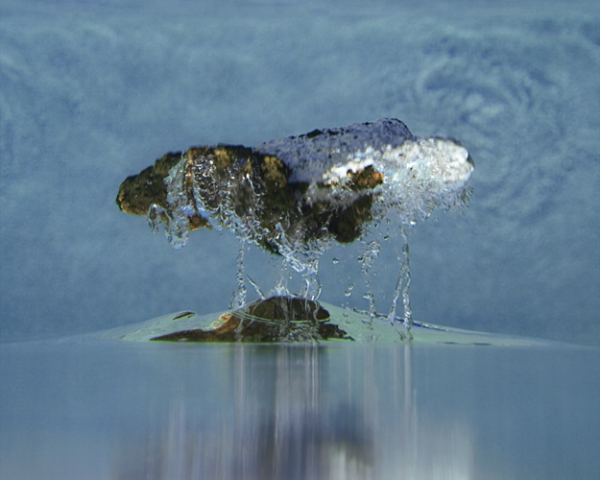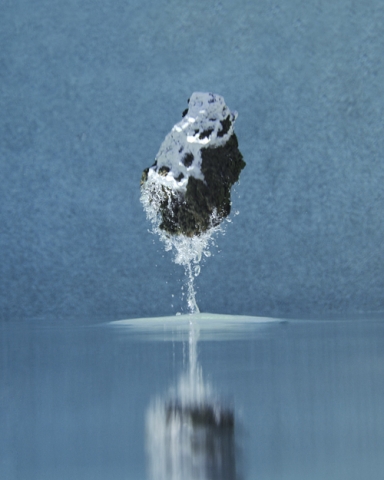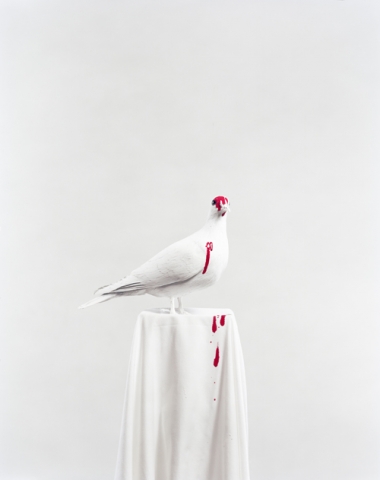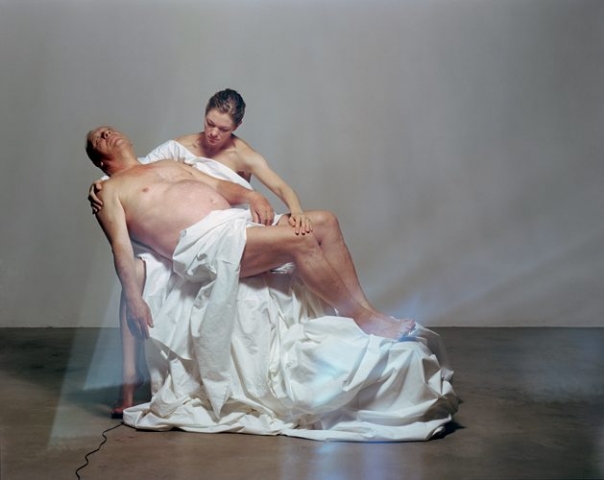Julia Krahn
Julia Krahn was born in Jülich in 1978 and grew up in Acquisgrana in Germany. In order to completely dedicate herself to art she abandoned her medical studies and moved to Milan. Her research investigates the permeability of eyesight between the identity of the artist and the spectator. She redefines daily objects and symbols of the past with photographs that present an ambiguous fluidity: rather than narrating the flowing of time or constructing a crystallised story they transform the fragments of a private and secret reality from a liquid into a solid state. Her work reflects upon the lost or unbalanced values of society, family and religion to the point of focussing the camera lens on images that take us back to Christian icons. The artist creates images that underline and accentuate the contrast with traditional symbols, working on conflicts by means of the ‘staging’ of couples of opposites. She is represented by a number of galleries in Italy and internationally and has won numerous prizes and earned recognition on an international level. In 2015 she exhibited at the Landesmuseum in Hanover, at the Lento Kunstmuseum in Linz (Austria), at Castelvecchio in Verona, at the Fondazione Stelline in Milan and at the Museo Diocesano in Milan with her solo exhibition titled It might have been a pigeon. On this occasion she also published JULIA KRAHN – The Last Supper. In 2016 she presented her SchönerHeit project, beginning a tour of solo exhibitions in Germany.

